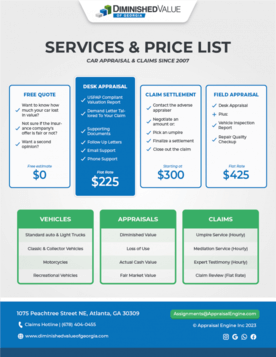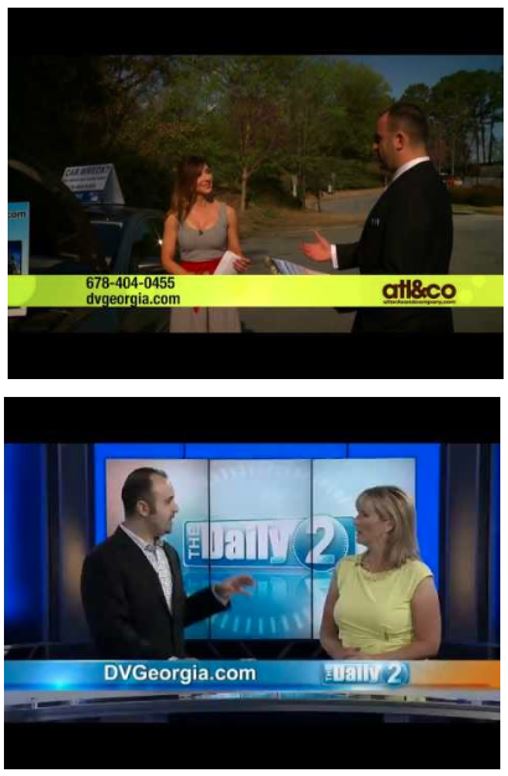
If the insurance company is offering you an unfair loss in value amount, you need to hire an independent appraiser to rebut their valuation.
You can also escalate the claim by contacting the Washington Insurance Commissioner.
To get the process started and to get a free estimate, please fill out the form below.
Insurance Bad Faith in Washington State
Citation: Wash. Admin. Code §234-30-300
Citation appears to be incorrect. Washington Admin Code §284 is “Insurance”. Subsection 30-330 is “Specific unfair claims settlement practices defined”
WAC 284-30-330 Specific unfair claims settlement practices defined.
The following are hereby defined as unfair methods of competition and unfair or deceptive acts or practices of the insurer in the business of insurance, specifically applicable to the settlement of claims:
(1) Misrepresenting pertinent facts or insurance policy provisions.
(2) Failing to acknowledge and act reasonably promptly upon communications with respect to claims arising under insurance policies.
(3) Failing to adopt and implement reasonable standards for the prompt investigation of claims arising under insurance policies.
(4) Refusing to pay claims without conducting a reasonable investigation.
(5) Failing to affirm or deny coverage of claims within a reasonable time after fully completed proof of loss documentation has been submitted.
(6) Not attempting in good faith to effectuate prompt, fair and equitable settlements of claims in which liability has become reasonably clear. In particular, this includes an obligation to promptly pay property damage claims to innocent third parties in clear liability situations. If two or more insurers share liability, they should arrange to make appropriate payment, leaving to themselves the burden of apportioning liability.
(7) Compelling a first party claimant to initiate or submit to litigation, arbitration, or appraisal to recover amounts due under an insurance policy by offering substantially less than the amounts ultimately recovered in such actions or proceedings.
(8) Attempting to settle a claim for less than the amount to which a reasonable person would have believed he or she was entitled by reference to written or printed advertising material accompanying or made part of an application.
(9) Making a claim payment to a first party claimant or beneficiary not accompanied by a statement setting forth the coverage under which the payment is made.
(10) Asserting to a first party claimant a policy of appealing arbitration awards in favor of insureds or first party claimants for the purpose of compelling them to accept settlements or compromises less than the amount awarded in arbitration.
(11) Delaying the investigation or payment of claims by requiring a first party claimant or his or her physician to submit a preliminary claim report and then requiring subsequent submissions which contain substantially the same information.
(12) Failing to promptly settle claims, where liability has become reasonably clear, under one portion of the insurance policy coverage in order to influence settlements under other portions of the insurance policy coverage.
(13) Failing to promptly provide a reasonable explanation of the basis in the insurance policy in relation to the facts or applicable law for denial of a claim or for the offer of a compromise settlement.
(14) Unfairly discriminating against claimants because they are represented by a public adjuster.
(15) Failing to expeditiously honor drafts given in settlement of claims. A failure to honor a draft within three working days after notice of receipt by the payor bank will constitute a violation of this provision. Dishonor of a draft for valid reasons related to the settlement of the claim will not constitute a violation of this provision.
(16) Failing to adopt and implement reasonable standards for the processing and payment of claims after the obligation to pay has been established. Except as to those instances where the time for payment is governed by statute or rule or is set forth in an applicable contract, procedures which are not designed to deliver a check or draft to the payee in payment of a settled claim within fifteen business days after receipt by the insurer or its attorney of properly executed releases or other settlement documents are not acceptable. Where the insurer is obligated to furnish an appropriate release or settlement document to a claimant, it must do so within twenty working days after a settlement has been reached.
(17) Delaying appraisals or adding to their cost under insurance policy appraisal provisions through the use of appraisers from outside of the loss area. The use of appraisers from outside the loss area is appropriate only where the unique nature of the loss or a lack of competent local appraisers make the use of out-of-area appraisers necessary.
(18) Failing to make a good faith effort to settle a claim before exercising a contract right to an appraisal.
(19) Negotiating or settling a claim directly with any claimant known to be represented by an attorney without the attorney’s knowledge and consent. This does not prohibit routine inquiries to a first party claimant to identify the claimant or to obtain details concerning the claim.
Loss in Value Questionnaire (Will take 2 minutes of your time)
Please fill out the form below to receive a FREE Diminished Value estimate.






